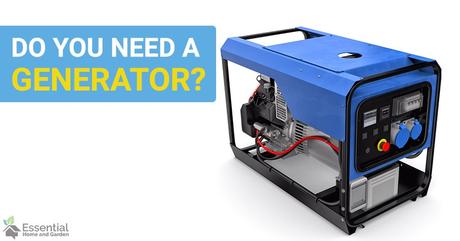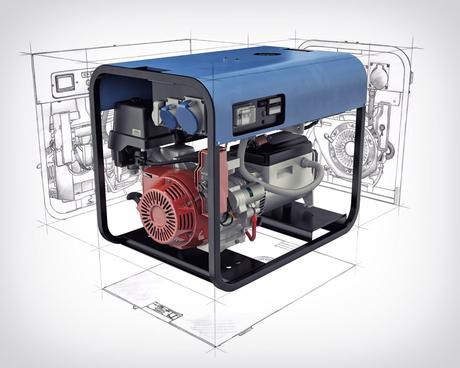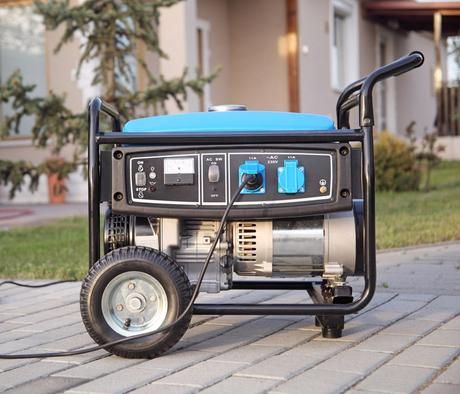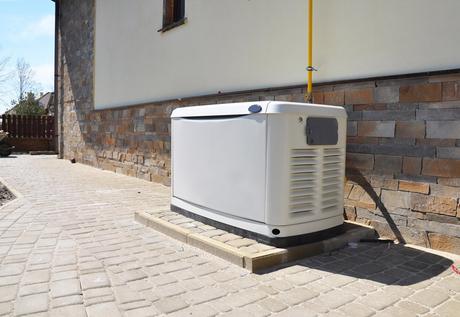
Depending on where you live, power outages might be can be a regular and unavoidable occurrence. Maybe the power outages are caused by storms, fire or just due to an unreliable power grid. Whatever the reason, you may be considering investing in a generator to get you through when the power goes out.
But do you need a generator? Are you aware of the different types of generators, and the costs involved with keeping one?
No? Well in this article we will run you through everything you need to consider when deciding whether or not you should buy a generator for your house.
Do You Really Need a Generator

The first question to ask yourself is: Do you actually NEED a generator? Or do you just WANT one?
That's not to say that if you just want one, that you shouldn't buy it - we all need our indulgences! But if you don't have excess funds laying around then it might be a luxury you can't afford.
Should you decide you do need to purchase one, choosing the right generator requires a lot of research. I highly recommend that you do your due diligence in order to save yourself making the wrong decision. Read this guide in full and then this website another good resource.
Here are some reasons why you might NEED a backup generator.
Large Amounts of Frozen/Refrigerated Food
Most food is not cheapo, and If you keep large amounts of frozen or refrigerated food (meats especially) then it might be worth investing in a generator.
According to foodsafety.gov A full freezer will keep food frozen at a safe temperature for around 48 hours during a power outage (assuming you don't open the door). After this time you will need to defrost it and consume it or dispose of it.
A fridge will hold food at a safe temperature for up to 4 hours during a power outage before it should be discarded.
Can you afford to lose all the food you have stored in your fridges and freezers? If not, then you may need a generator.
If you store only small amounts of food any one time then the cost of installing a power backup device probably outweighs the benefits.
Medical Equipment On Site
If you have life saving medical equipment on site that requires power to operate and it may be needed in an emergency, then it goes without saying that you need some sort of backup power.
Some of these medical devices may include:
- Home dialysis machine
- Suction devices
- Breathing machines
It is possible that such equipment has battery backup, but how long does it last?
If your average power blackout last for longer than the batteries on your emergency medical devices (or they don't have backup at all) then you probably need a backup power source.
Essential Heating
If you live in a colder part of the world then you heating your home is not a luxury, it is a necessity.
And depending on the type of heating you use, it may be that you require power to keep your house warm.
Pellet stoves, electric space heaters, heat pumps and central heating all require electricity to run. An extended power outage could mean allowing the house to drop to uncomfortable and possibly dangerous temperatures.
Emergency Communications
For some of people, being able to communicate with the outside world is essential. Not just to be able to check your instagram feed, but to be able to contact emergency services in the event of an emergency.
If you rely on power to keep your communications up and running (charging phones, CB radios, internet) and you simply MUST have the ability to contact the outside world at all times then you might need to look into a generator.
Essential Equipment
It's possible that you have other non-lifesaving equipment in your home that is almost as important to keep running.
One example that spring to mind is a sump pump. Many houses rely on these devices to ensure they aren't flooded and moisture levels are kept to a minimum.
So sit down and make a list of any devices that absolutely must have power in your home.
Things To Keep In Mind When Considering a Generator
Owning a generator is not simply a case of set it up when you need it and it works. There are numerous things that you need to be aware of before purchasing one.
They Need Fuel
Portable generators are generally powered by gasoline, so you need to have a decent amount of gasoline in storage ready to use in the case of a power blackout.
But then you also need to consider that gasoline does not last forever. It goes bad (or stale) and needs to be changed over at regular intervals.
The amount of time that gas takes to go bad depends on a few different factors, but generally it will last 3-6 months.
Standby Generators usually run on propane or natural gas, which means you will either need the generator to have a gas feed installed from the mains pipe or you will need a large tank on site to store it locally.
Generators Need Maintenance
For most people, generators are devices that are rarely used - which means for extended periods of time without being started up. It is recommended that you start your generator every 3 months and let it run for about 20 minutes.
Generators also require the same maintenance that any motor does, and it is recommended that this is done by a qualified professional.
Be Ready For Fumes and Noise
Generators are not quiet, nor do they put out sweet smelling fresh air!
Keep this in mind when deciding where you might place your generator to power your house or essential equipment. Keep it away from open windows and away from sleeping areas.
There are some models of generator that are quieter than others, so if this is a factor for you be sure to do your research.
I will touch on this further in the next section, but depending on the type of generator you choose - it may cost quite a bit to purchase and install.
Portable generators are obviously much cheaper than standby generators, but they are also less efficient.
What Type of Generator Do You Need?
There are two main types of generators that I will go over here for the purposes of this article. Portable and standby generators
Portable Generator

Power Output: 3,000 - 8,000 watts
Purchase Price: $400 - $1,500
Fuel Usage: 12 - 20 gallons of gasoline per day
Portable generators are exactly what they sound like - portable. They are designed to be kept in storage until needed, then when a power outage occurs you bring them out and connect them up to your most essential items that require power.
It is possible to connect them to power your house, but this is not when they are designed for.
Portable generators are also less efficient than standby (installed) generators.
Standby Generator

Power Output: 8,000 - 20,000 watts
Purchase Price: $2,000 - $5,000
Installation Price: $2,000 - $15,000
Fuel Usage: 13 - 48 gallons of LPG or natural gas per day
Standby generators are permanently installed and automatically start up and take over the supply of power in the event of a power outage.They do this via a transfer switch, both the switch and the generator need to be installed by a qualified trades person.
Standby generators are also usually fuelled by propane or natural gas and are much more efficient than their portable counterparts.
Ultimately, whether you should buy a generator for your house comes down to your needs. For some of you it may be a necessity, for others it may be a luxury. Either way, at least you are now armed with the info you need to make an informed decision.
